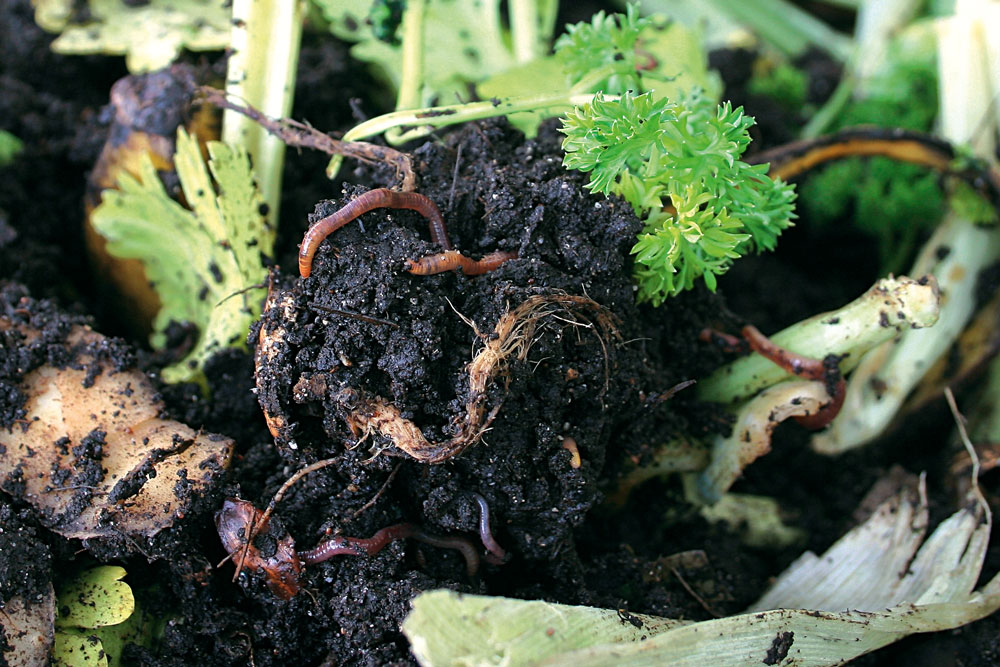
Australian households throw out more than four million tonnes of food a year, which is equivalent to at least $5 billion, or about 20 of the food we buy.
‘When you throw out food, you’re also throwing out all of the resources that were used to get that food to your plate,’ writes Sydney restaurateur and cookbook author Kylie Kwong.
‘Dumping a kilo of beef wastes the 50,000 litres of water it took to produce it,’ adds John Dee, a founder of action group Do Something.
His FoodWise campaign aims to educate Aussies and help distribute surplus restaurant food to the needy.
‘Throwing out a kilo of white rice will waste 1550 litres. Discarding a kilo of potatoes wastes 500 litres.’
When food rots in landfill it also produces methane, a greenhouse gas far more potent than CO2 pollution from vehicle exhaust.
The NSW Government’s Waste Avoidance and Resource Recovery Strategy says that cutting food waste by 66 would be equivalent to taking 117,000 cars permanently off the road in NSW alone.
Go local and frugal
Think about how and where food is produced. If you buy food grown or made in Australia, then it hasn’t been shipped here. Food in season is also cheaper, saving you money.
Buying locally supports farmers and saves on the cost of refrigeration and transport, reducing food miles.
The frugality movement is about saving cash, resources and the planet with easy steps like growing vegies, keeping chooks and making more foods at home, such as bread or pasta.
Fans of frugal choose food with less packaging and where possible buy from farmers’ markets, where the food is offered for sale by the same people who produced it.
Everyday ways to save include making lunchboxes rubbish-free, using re-usable bottles instead of buying bottled water, keeping green bags in the car and swapping chemical cleaners for microfibre cloths.
Smart grocery shopping
The best way to avoid food waste is to only buy what you need, so always shop with a list in hand.
Check what you have and what’s in season before planning meals, and grow your own fresh herbs or use a bunch over a few meals.
‘If you can stick to a shopping list and avoid the two-for-one offers then you could end up saving hundreds of dollars a year,’ says John.
Actor and cookbook author Jane Kennedy believes that ‘hidden food is wasted food’.
Every week she records what she has bought on a kitchen blackboard, including the date of purchase, so produce is less likely to be forgotten.
‘If you’ve got something lurking in the back of your crisper and you can’t see it, you’ll never use it,’ Jane says.
Storing food correctly is also crucial for waste avoidance as it extends shelf life and prevents the growth of harmful bacteria.
According to reports, one-third of food is thrown out for reasons such as lack of fridge or freezer space, lack of storage containers or mere laziness.
Invest in a quality set of containers and make good use of the freezer, which is the perfect place to keep perishables such as high-fat nuts and staples like bread and excess milk.
At the very least, those droopy vegies should be added to a compost bin or worm farm for the garden.
Keep food fresh for longer
Reduce wastage by storing fresh food and leftovers the right way.
SET THE FRIDGE to a maximum of 4º and keep the freezer at -18º.
REFRIGERATE HOT leftovers as soon as they stop steaming.
FREEZE cooked rice right away to keep it moist. It can be defrosted and reheated in the microwave.
AVOID STALE CHIPS by storing them in the fridge not the pantry.
LUNCH ON LEFTOVERS or add rice, potato or pasta to create another meal.
WRAP FRESH HERBS in damp kitchen paper, put in a plastic bag and store in the crisper, or chop and freeze them.
BE AWARE of best-before dates on produce and label and date items or leftovers to be frozen.
USE RIPE FRUIT immediately or store in the fridge. Overripe produce makes other fruit in the bowl rot faster.
STEW BRUISED FRUIT and serve it with breakfast or dessert.
PEEL SOFT BANANAS and freeze for use in cakes and smoothies.
CUT CROUTONS from leftover bread and crusts then freeze.
MAKE SOUP and stock out of wilted vegies and pesto from excess herbs.
DECANT leftover tomato paste, curry paste and coconut milk into ice-cube trays and freeze.
Compost at home
For every tonne of food waste kept out of landfill, we stop nearly a third of a tonne of emissions polluting the air.
To dispose of biodegradable waste at home, including overripe fruit and veg, old bread and cooked scraps, create a composting system.
Compost is decomposed organic matter that is used as a nutritious soil conditioner. It’s not a fertiliser but it does promote healthy plant growth.
In a big garden a system of three open-air bins is ideal. Start a heap with kitchen and garden scraps and turn it weekly, adding water if it’s dry.
Transfer it to the second bin to mature and the third when ready to use.
If space is tight, buy a compost bin. Choose a tumbler bin to make aeration easy, or turn waste into liquid with an indoor composter.

Click here to learn how to make a worm farm
This article originally appeared in the March 2014 edition of Australian Handyman magazine

